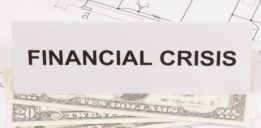Rising Inequality Increases the Risk of Economic Collapse
The coming economic collapse will highlight the fact that poverty remains an issue. Contrary to what modern economics suggests, “perfect” capitalism does not require inequality or poverty. Inequality, in fact, represents the biggest threat to a thriving capitalist system because it prevents many potential consumers from participating, diminishing the reach of the market system.
Think about it. Poverty fosters social breakdown. It’s poverty that is driving a wedge in American society today. If not immediately, and especially after a major stock market crash, poverty causes the kind of division that leads to economic collapse.
The middle class is declining while the rich are living in isolation. The only times that inequalities have softened have occurred after the big world wars. Now, capitalism itself is under threat as is society. There is the risk of world wars, nuclear wars, and class wars. We have reached a peak. It’s the worst possible situation: we have a few very rich and many poor people.
The German philosopher Hegel warned us that we often ignore what is most obvious. Poverty falls into this category. We don’t really know it in the West. Not because it doesn’t exist, but because ever since the fall of the Berlin Wall in 1989 and the victory of capitalism over communism, we’ve ignored it. We’ve assumed it doesn’t exist. The fact that finance has trumped the economy is proof.
But, except for a handful of billionaires, it’s a nightmare of inequality and misery. An objective study of history rejects the idea that capitalism is to blame for inequality, poverty, and underdevelopment. The free market system, when allowed to function under proper operating conditions, is the best mechanism to reduce poverty and promote economic growth. There was a time, not too long ago, when America showed that this was possible.
Inefficient Businesses Must Be Allowed to Fail…Not Their Employees
But, this has long stopped. Perhaps this is what Trump’s election was about. Still, the essential principle of the free market is that inefficient companies must fail. The problem now is that inefficient companies stay and their workers suffer instead. Thus, inefficiency is rewarded while poverty increases. To improve capitalism, going back to its basic idea, businesses must be allowed to fail. Better mechanisms must be adopted to protect workers, in order to prevent resistance to the “creative destruction” of the market.
Capitalism and economic growth are the first victims of poverty. Allowing it to persist merely accelerates the course of economic collapse.
In fact, poverty is a big drag on the economy. Its persistence in the United States might offer the explanation as to why the U.S. economy has grown without inflation. That’s the riddle that Federal Reserve Chair Janet Yellen has been struggling to solve. Still, addressing the issue seriously would force Yellen to admit that poverty persists and that it could be both the symptom and the trigger for economic collapse.
While, the markets are rising—incurring ever greater odds of crashing—the overall U.S. economy is failing to distribute wealth. Recently, CNBC reported that the United States’ Gini coefficient (which measures inequality) is now the same as Kenya! Miami has become like Zimbabwe and Los Angeles is no better than Sri Lanka. Inequality isn’t the problem in itself. What does become a problem and a threat to the very fabric of society is “too much” inequality. That’s what is happening in the United States. (Source: “The rich have advantages that money cannot buy, Financial Times, June 8, 2014.)
The French economist Thomas Piketty has studied the phenomenon of inequality at length. He notes that when the rates of return on capital are higher than the rates of economic growth—the situation we have now, that is finance grows faster than the economy—those who are already rich are the ones that become richer.
Poverty isn’t “just” lazy people by circumstance, or choice, living on the edge. It’s a term full of nuance, which has a bigger role in the U.S. economy that is often admitted. Poverty means that a large section of the population will have a limited ability to develop the skills to survive, let alone thrive, in the economy. At best, untrained people today can expect to “secure” marginal jobs, of the kind that do not contribute to a company’s productivity. More importantly, such jobs fail to stimulate the growth of their personal finance. It doesn’t take long before this virus spreads widely enough, ending in economic collapse.






